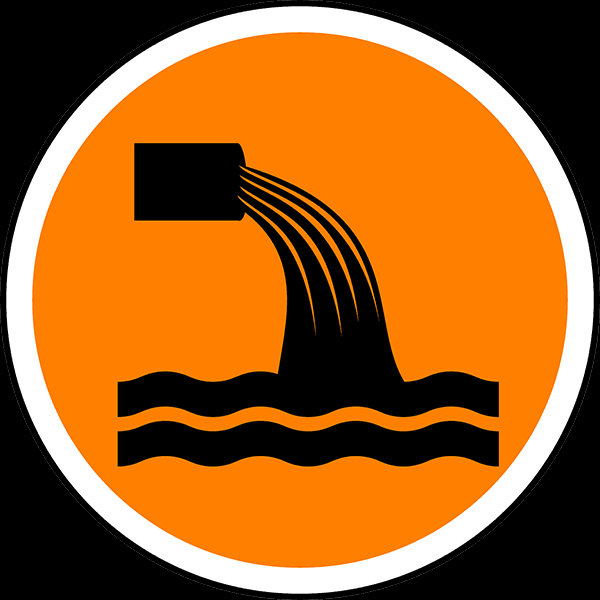The Single Strategy To Use For Reclaim Waste
The Single Strategy To Use For Reclaim Waste
Blog Article
More About Reclaim Waste
Table of ContentsAll about Reclaim WasteUnknown Facts About Reclaim WasteNot known Details About Reclaim Waste A Biased View of Reclaim WasteAll About Reclaim Waste
Via appropriate fluid waste management, business can lower energy-intensive treatment procedures and disposal costs. By complying with a system for taking care of fluid waste, firms can avoid expensive fines and charges and prevent negative publicity.(https://reclaimwaste1.mystrikingly.com/blog/efficient-liquid-waste-disposal-in-melbourne-why-reclaim-waste-is-your-go-to)Gather representative examples from various factors within the waste stream to make certain accuracy. Conduct periodic testing to track any changes in the make-up. Maintain thorough documents of characterization for future recommendation and conformity objectives. Liquid waste, specifically unsafe ones, presents significant threats throughout this step. Correct procedures reduce spills, leakages, and other mishaps that can hurt the employees and the general public.

Disinfection (e.g., chlorination, ultraviolet light, ozonation) and nutrient elimination (e.g., denitrification and phosphorus eradication) are advised under rigid policies. Numerous companies went against a number of liquid waste disposal guidelines in recent years.
The Definitive Guide to Reclaim Waste

Superficial containers contain liquid waste that is allowed to evaporate via all-natural procedures. This type of disposal is subject to rigorous environmental guidelines due to potentially hazardous exhausts.
The findings ought to be recorded, evaluated, and stored not just for entry to regulatory authorities but additionally for making enhancements in the future. Share info with relevant stakeholders (e.g., workers, regulatory government companies, and close-by communities) to maintain transparency and accountability.
Understanding these can help them successfully handle their operations and lessen their environmental impact. Business that can't spend in centers must think about teaming up with the public market for much better solutions.
Little Known Facts About Reclaim Waste.
By executing extensive administration systems that consist of therapy and reusing strategies, normal surveillance, danger analyses, and adherence to local and federal guidelines, commercial facilities can add to the security of groundwater materials, ensuring their schedule for future generations advice (liquid waste removal melbourne). Let's dig into the significance of reliable liquid waste monitoring in the commercial sector, concentrating on its implications for safeguarding groundwater sources
The contamination of groundwater resources as a result of inappropriate liquid waste administration in the commercial industry has significant consequences for human health, agriculture, and the environment all at once. Some of the possible effects brought on by such contamination include: Contaminated Drinking Water Materials: As groundwater supplies a considerable portion of our alcohol consumption water, air pollution from industrial activities can bring about dangerous chemicals and microorganisms entering our water supply, positioning wellness threats for people.
Decreased Agricultural Productivity: Farming counts greatly on groundwater for irrigation; for that reason, polluted water can prevent plant returns, pollute farming products, and influence food safety and security. Offered the value of maintaining groundwater resources, it is vital for services to take a proactive position in managing their fluid waste properly and preventing pollution.
The smart Trick of Reclaim Waste That Nobody is Discussing
Liquid waste can pollute land and pollute waters. Under the Defense of the Environment Workflow Act 1997, businesses that generate fluid waste are needed to handle it in such a way that safeguards the setting and the area. Details regarding taking care of and keeping liquid waste, responding to spills and decreasing liquid waste is readily available in the following truth sheets and advice:.
The function of waste management specialists in guarding this priceless resource can not be overstated. Contaminated water and infected effluent monitoring: Making certain that hazardous liquids are safely eliminated and treated before they can damage our water resources.
Therefore, incorporating sustainable fluid waste monitoring into economic planning boosts financial security and safeguards the setting, showing the value of this strategy. In final thought, taking on expert liquid waste management practices is crucial for guaranteeing a lasting future, safeguarding our environment and securing the well-being of future generations.
When it comes to dealing with waste, sticking to appropriate procedures is critical for a plethora of factors. Correct waste disposal is not almost sanitation; it has to do with making certain the wellness of our setting, wellness, and the reliable use sources. Understanding the significance of efficient waste management can assist us all contribute to a much healthier, cleaner earth.
Reclaim Waste Fundamentals Explained
Effective waste monitoring helps preserve clean streets and public spaces, decreasing the visual effect of trash and guaranteeing that waste does not damage wildlife. When waste is not taken care of correctly, it can lead to contamination, where harmful compounds can seep right into the dirt, water systems, and the air, producing long-term ecological issues.
Report this page